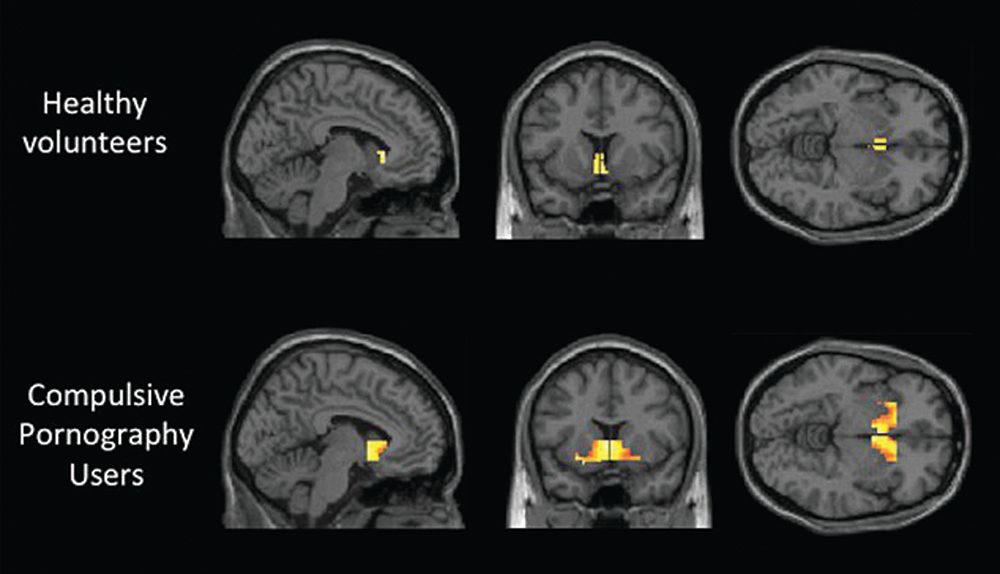Misconceptions about sex are all too common, and they can make it difficult to have honest and open conversations about sexuality. However, it’s important to address these misconceptions head-on and educate ourselves and others about what sex is and isn’t.
It’s time to debunk these misconceptions and set the record straight.
Misconceptions About Sex
How Often Do You Do It??? – Misconceptions #1
Most people think that everyone’s getting down and dirty a certain number of times per week. But, let’s be real here – your sex life is your own business. What truly matters is whether you’re happy and satisfied with your sex life.
Do you want more action or less?
Ask yourself that first, and then chat with your partner about it. It’s important to be on the same page. In my opinion, a good sex life isn’t about how often you get it on. It’s about feeling fulfilled and connected.

Women Don’t Have Sexual Disfunction – Misconception #2
Some folks out there think that women don’t have sexual dysfunction. You know, for guys, it’s pretty obvious when something’s not working right. But for ladies, it’s not that simple.
They might say they’re not getting off, but how do you really know? We don’t have those tell-tale signs like men do. But there’s been some evidence that changes to blood and nerve supply down there can cause dysfunction.
Don’t Have Sex too Early On In a Relationship – Misconception #3
People often think that having strict rules about when to have sex will make their relationship more serious. But that’s not always the case!
And just because you do or don’t have sex early on, it doesn’t mean your relationship will be amazing or terrible.
What’s important is that you talk about what sex means to you and your partner early on. Real intimacy and commitment take time to build. Having sex too soon only gives you a sneak peek at what the sex might be like.

Can’t find the Clitoris – Misconception #4
The clitoris isn’t only the uncovered part. It’s what keeps running underneath. The vast majority surmise that the clitoris is only somewhat uncovered and nubby head. When in fact, it is wishbone-molded and keeps running down either side of the vagina underneath the labia.
So it’s a great deal greater than the vast majority think. Research has demonstrated that clitoral stimulation works very well for ladies. The perfect spot is the 1 o’clock spot just to the side of the clit.
Ready for Sex All the Time – Misconception #5
Lots of people believe that you should always be super eager to get with your partner and constantly want to tear their clothes off.
But in reality, desire is something that needs to be built up. It doesn’t just magically appear out of nowhere. Sometimes you just gotta go through the motions and hope that your brain catches up with your body.
Honestly, I think couples who make a point of scheduling sexy time are way cooler than the ones who just wait around and get bummed out when nothing happens.
Women Shouldn’t Play the Field – Misconception #6
We’re way more chill about talking about sex and stuff than we used to be. But sometimes we still don’t feel comfortable sharing what we really want.
A big reason for this is how we’re brought up and what society tells us is “normal.” When it comes to movies and TV shows, guys always seem to have it easy and they’re always down for some action.
But let’s be real, that’s not always the case. Unfortunately, women still get a bad rap for being sexual beings. It’s dangerous and unfair that women are often judged and shamed for their sexuality.
Everybody should be able to think about their expectations, comfort levels, and desires, whether they are in a committed romantic relationship or a one-night stand.
Sex Should Be Romantic and Delicate – Misconception 7
Some people think that sex should always be romantic and gentle to be considered good. Sure, setting the mood with Barry White music, candles, and flower petals can be enjoyable and a great way to spend an evening.
But personally, I believe that sex can also be playful.
When we use “play,” we are more open to the possibility that sex can be senseless and ridiculous and filthy and uncivilized. Be interested in the possibility that there’s a ton of ways that sex can look.

How Harmful Is Porn? The Facts, the Misconceptions and the Unknowns
Even though people worldwide speak different languages, eat different foods, and even feel different emotions, one thing is universal—millions of them watch porn.
How Harmful Is Porn?
Porn is blamed for society’s problems. Politicians in Utah have even called it a threat to public health.
What does the evidence show about how porn may or may not affect people? Can research answer any questions?
The truth is that scientists find it hard to study this question. Due to the nature of porn, researchers have to either rely on people to tell them how often they do it or show it to them in a lab, which is not a natural setting. (And probably a little strange, too.)
Some data can give hints. Let’s look at the vices that porn is accused of and what data has to say about it.

Sexual Violence
Whenever a sexual offender is arrested, there is always the question about their porn use. Does porn have the power to normalize, encourage and even trigger rape and sexual violence?
This idea has been looked into for decades. In the 1970s, Berl Kutchinsky, a professor of criminology at the University of Copenhagen, looked at the number of sex crimes in Denmark, Sweden, and Germany.
In the late 1960s and early 1970s, these countries legalized porn. He found no link between a rise in crime and decriminalization. In fact, some types of sex crimes, like rape and child molestation, went down during this time.
In 1995, more than 4,000 people participated in a meta-analysis of 24 studies examining the average relationship between porn use and how people think about rape and sexual assault.
How Harmful Is Porn?
All the studies used the “rape myth” scale, which asks people to rate how much they agree with statements like, “If a woman goes to a man’s house or apartment on their first date, it means she wants to have sex.”
In experimental studies, those who watched porn were likelier to believe rape myths than a control group. Non-experimental studies, in which people just told what they knew, showed no correlation.
So, the results were inconclusive.
It has been said that porn is getting more violent over the years. In a recent porn documentary, an old porn star said that in the 1990s, porn meant “making love on a bed” and having “lovey-dovey sex.” But this is no longer the case.
Porn and Regular Love Making
Currently, porn is not only about regular lovemaking. There are plenty of other genres, such as BDSM, that are more violent.
And this was found to be true.
In 2010, researchers looked at more than 300 porn scenes and found that 88% showed violence. Most of the aggressors were men, and most of the victims were women. When the women were attacked, they usually smiled or said nothing.
What do the latest studies say?
In 2009, a review of more than 80 studies found that there isn’t much proof that porn use causes violence. Studies showing a link are often blown out of proportion by the media and politicians.
“It is time to throw out the idea that pornography makes people more likely to commit sexual assaults,” the authors wrote.
Neil Malamuth at the University of California, Los Angeles, has done a lot of research on porn and sexual violence.
In one study with 300 men, he found that men who are already sexually aggressive and watch a lot of sexually violent porn are likelier to do something sexually violent.
But he says that porn isn’t why people hurt each other sexually. In 2013, he said on Radio that porn use is like drinking alcohol. It’s not inherently dangerous but can be for people with other risk factors.
Damage to the Brain
A 2014 study found that watching porn could cause a pleasure-related part of the brain to shrink. Researchers at the Max Planck Institute in Berlin watched the brains of more than 60 men as they looked at pornographic pictures and asked them questions about their porn-watching behavior.
The researchers found that the striatum, part of the brain’s reward system, was smaller in people who watched a lot of porn. This suggests that people who watch a lot of porn may need more graphic material to get aroused.
Porn Causes Erectile Dysfunction
Despite the researchers arriving at this conclusion, they couldn’t say if the people whose striatums were smaller watched more porn because they wanted to. Or if they watched more porn because it made their striatums smaller.
The same way porn is accused of damaging the brain, it’s also accused of causing erectile dysfunction. The truth is that there isn’t much research to back this up.
Researchers from UCLA and Concordia University found that men who watched the most porn reported feeling more sexually aroused when shown porn in the lab.
Ruining Relationships
People have long said that porn gets in the way of couples’ sexual lives. The research found that men who watched more porn were less happy with their sex lives.
This could be because of the type of porn they watched. The same study found that women who watch porn were happy and satisfied with their sex lives.
Researchers think this might be because women are more likely to watch porn with their partners than alone. While men tend to watch less consensual sex acts when they watch alone.
Another study found that people who watched https://xvideo.com.au/elt more committed to their relationship and sexually satisfied than those who watched it alone.
Should you Continue Watching Porn?
Watching porn has been linked to many problems for people and society, but for every study that says it’s bad, there’s another that says it’s not.
Often, there are different kinds of evidence, and the research methods and sample sizes used in studies have their limitations.
If you love porn, you must wonder whether you should continue watching it, right? Well, as long as it’s not coming in the way of your relationship and sex life, there is no harm in doing it.
To spice up the relationship, it will even be better if you can watch porn with your partner.

Richard, our marketing guru, steers Adultsmart’s online presence. With over 10 years in the industry, he’s passionate about sexual health and lifestyle issues.








Leave a Reply